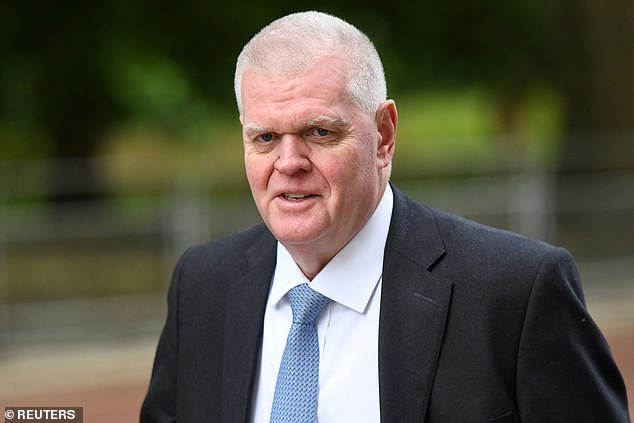Table of Contents
Noel Quinn’s tenure at the helm of Britain’s biggest bank, HSBC, has been remarkably short.
In his four years in power, however, he has radically changed the lender’s approach and controversially redoubled efforts to maintain its historic base in Hong Kong, despite Beijing’s crackdown on political and economic freedoms in the territory.
As Quinn noted when presenting his latest set of results as chief executive, the bank has thrived in the region for 158 years.
His global rival, Jamie Dimon of JP Morgan, has spent the past 16 years expanding a New York-focused investment bank into a global giant, never missing an opportunity for an acquisition.
Asia Focus: Noel Quinn opted to double down on HSBC’s historic Hong Kong base despite Beijing’s crackdown on political and economic freedoms in the territory
Quinn has narrowed his bank’s mandate, focusing on Hong Kong, China and Britain. Divestments have been made in G7 markets including the United States, Canada and France.
Investors, including Beijing-influenced breakaway shareholder Ping An, have been rewarded in the Quinn era with dividends and share buyback payments valued at about £42bn.
The windfall that HSBC and other banks have enjoyed from higher interest rates is starting to wear off.
As official and market interest rates have trended lower around the world, HSBC is cleverly looking to broaden its business model by focusing on wealth management.
Despite the exodus of businesspeople from Hong Kong and other financial centres, HSBC continues to attract new retail accounts in its area of influence. Quinn has been busy making strategic moves.
His successor, Chief Financial Officer Georges Elhedery, who takes over in September, is expected to be tasked with cutting costs and making more efficient use of HSBC’s 200,000 staff.
Chinese growth has slowed, the housing crisis has been costly and the battle for the South China Seas does not look like getting any easier.
However, this is still Asia’s century.
Oil threat
Since the deadly Hamas attacks on October 7, the world has been on alert for the prospect of the conflict in Gaza escalating into a wider war in the Middle East.
A pair of high-profile assassinations by Hamas and Hezbollah have brought that possibility closer.
Russia’s war on Ukraine has made Western finance ministries and central banks acutely aware of how geopolitics can impact the global economy.
Unlike the crisis that followed the Yom Kippur War in 1973, the energy price shock that followed the cutoff of oil and gas supplies from Russia was short-lived.
The round-trip process has allowed Russian energy to reach Western economies via India and China.
American fracking has changed the West’s dependence on supplies from Russia and the Middle East. And when the wind blows, renewable energy makes all the difference.
Fears of a wider conflict pushed oil prices higher in late trading, with Brent crude prices up 2.8 percent to just above $80 a barrel.
Unless supply routes from the Middle East are blocked (and the Houthis have been trying to do that for months), there seems to be no reason to panic.
Risk takers
Unlocking Britain’s stranded pensions and other savings was a goal of Jeremy Hunt’s Mansion House reforms and a change the new government cannot dismiss as a gimmick.
So the decision by Phoenix Group and Schroders to join forces to invest £2.5bn in riskier private companies, thereby changing a risk-averse culture, is a major step forward.
The couple are aiming to unlock more than £20bn in the next decade. It’s about time.
DIY INVESTMENT PLATFORMS

AJ Bell

AJ Bell
Easy investment and ready-to-use portfolios

Hargreaves Lansdown

Hargreaves Lansdown
Free investment ideas and fund trading

interactive investor

interactive investor
Flat rate investing from £4.99 per month

Saxo

Saxo
Get £200 back in trading commissions

Trade 212

Trade 212
Free treatment and no commissions per account
Affiliate links: If you purchase a product This is Money may earn a commission. These offers are chosen by our editorial team as we believe they are worth highlighting. This does not affect our editorial independence.


